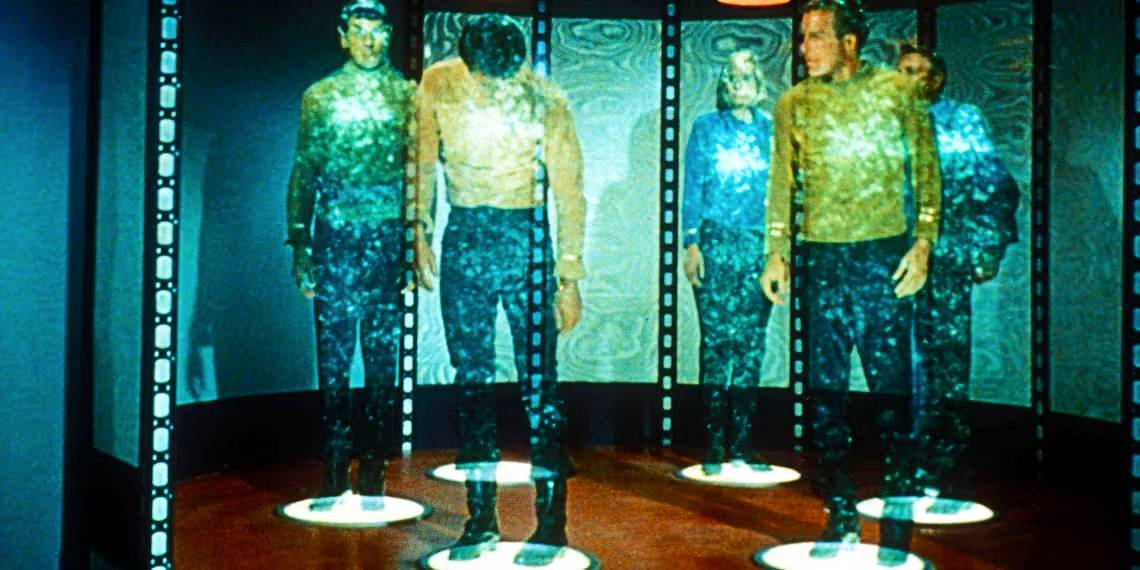A new study finds that teleportation is the most valued superpower (beating out mind-control, flight, and supernatural physical strength), with people willing to sacrifice an average of five years of their life for this ability.
If superpowers were real, teleportation would be the most prized ability, according to a new study by Julian J. Hwang from West Virginia University and Dongso Lee from the Korea Rural Economic Institute.
Their research, published in the Journal of Cultural Economics on June 19, 2024, aimed to quantify the economic value of four specific superpowers: mind-control, flight, teleportation, and supernatural physical strength.
The study revealed that participants were willing to give up significant years of their life to gain these abilities, with teleportation topping the list.
Superpower Preferences Among Students
The study involved 65 undergraduate students from the University of Florida, 51 of whom completed the survey.
These participants were instructed to provide a diverse range of opinions on superpower preferences.
The survey asked them to imagine a scenario where they could acquire one of four superpowers, but at the cost of a reduced life expectancy.
The superpowers evaluated were mind-control, flight, teleportation, and supernatural physical strength.
Mind-control allowed the user to control another person’s mind for five minutes at a time.
The flight power enabled the user to fly at a maximum speed of 45 mph, with a daily travel limit of 100 miles.
Teleportation granted the ability to transport oneself or objects instantly to any location.
Supernatural physical strength, akin to Captain America’s strength, allowed one to lift up to 800 pounds.
Results: Teleportation Takes the Lead
The participants showed a clear preference for teleportation, which participants were willing to sacrifice an average of 5.04 years of their life to obtain.
The study found varying levels of willingness to sacrifice for other superpowers.
Participants were willing to give up an average of 3.2 years for mind-control, 2.07 years for flight, and 2.95 years for supernatural physical strength.
The study utilized a discrete choice experiment (DCE) design, which is commonly used in economic research to measure preferences by presenting respondents with a set of alternatives and asking them to choose their preferred option.
In this case, participants had to choose their preferred superpower at different life expectancy costs.
Understanding Willingness-to-Sacrifice (WTS)
The concept of willingness-to-sacrifice (WTS) was central to the study.
Instead of asking participants for a monetary value they would pay for a superpower, the researchers asked how many years of their life they would be willing to give up.
This approach provided a non-monetary measure of the value participants placed on each superpower.
Implications and Future Research
This study offers intriguing insights into how people value extraordinary abilities and the lengths they would go to obtain them.
The findings suggest that teleportation is highly valued due to its potential to save time and eliminate travel costs.
In practical terms, this research could have implications for future technological advancements and how society might prioritize the development of certain capabilities.
The study is also relevant for research in economic valuation where traditional monetary measures are not applicable.
It opens the door to exploring the value of various intangible assets and experiences in new and innovative ways.
The study represents a unique and creative approach to understanding human preferences and the economic value we place on abilities that, while fictional today, might one day be within our reach.
As technology advances, who knows what superpowers might become reality, and this research gives us a glimpse into which ones we might cherish the most.
Study Details
- Title: Economic valuation of becoming a superhero
- Authors: Julian J. Hwang, Dongso Lee
- Publication Date: June 19, 2024
- Journal: Journal of Cultural Economics
- DOI: 10.1007/s10824-024-09513-1

